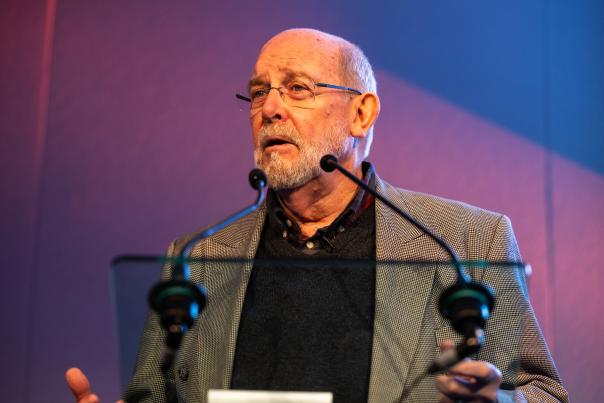
In his keynote address, Professor Bundy argued investing in school meals will have a long term positive impact on general health, reducing obesity, under pinning the NHS and global health services and leading to healthier outcomes throughout adulthood.
He told the audience of specially-invited attendees this was accepted even in war-ravaged Ukraine, which hosted a recent European Regional School Meals Summit that he attended.
He said that First Lady of Ukraine Olena Zelenska had told the summit school meals were vital because children spend a lot of time in schools and it may be their only meal of the day.
Ukraine has spent £4m to build a number of factory kitchens around the country, which cook and deliver meals to up to 30 schools using local produce.
To help Ukraine roll out its school meal plans the European Union pledged £50m at the summit so that Ukraine can ensure the current generation of children whose lives are being affected by the war with Russia get a hot, healthy and nutritious meal every day at least.
Professor Bundy highlighted the importance of the first 8,000 days of life, contrasting that with the UK’s focus on the first 1,000 days.
“This is not long enough. The first 1,000 days are hugely important to development, of course, but so are the years from 4-19 when bodies and minds go through so many changes.”
He pointed to a study in Malawi which showed children given school meals were 1.2 times more likely to working outside the primary sector of farming and mining than those who missed out.
He then talked out the decision in 2021 of 46 national governments, led by Finland and France, and 44 partner organisations to join forces to form the School Meals Coalition with the aim of ensuring all children have access to healthy nutritious meals in schools by 2030.
The move was prompted by the Covid-19 pandemic of the year before which saw 199 countries close their schools and resulted in 370m children missing out on school meals.
He said the School Meals Coalition has now signed up 107 countries, including 20 European countries, and he described it as ‘ridiculous’ that the UK was not part of the coalition and urged the PSC Alliance to address the issue.
Professor Don Bundy added: “Well-designed school meals and complementary programmes can have large multi-sectoral returns such as household food security, improved female education, benefits to the rural economy and dietary diversity.”
Research had shown large returns, potentially between £6.70 and £33.50 for each £1 of investment and there were an estimated 2,000 new jobs created for every 100,000 children fed.
He said that school meals in the US were used as a market for farmers in the Mid-West, pointing out that a similar thing was happening in Nigeria where the Government four years ago committed using locally-grown food to provide school meals for 10m children, with plans to expand that in the future to 20m.
He concluded: “The UK Government needs to invest in schoolchildren who will become the next generation and I encourage you all here today to join the School Food Coalition’s global academy of experts from all over the world.”